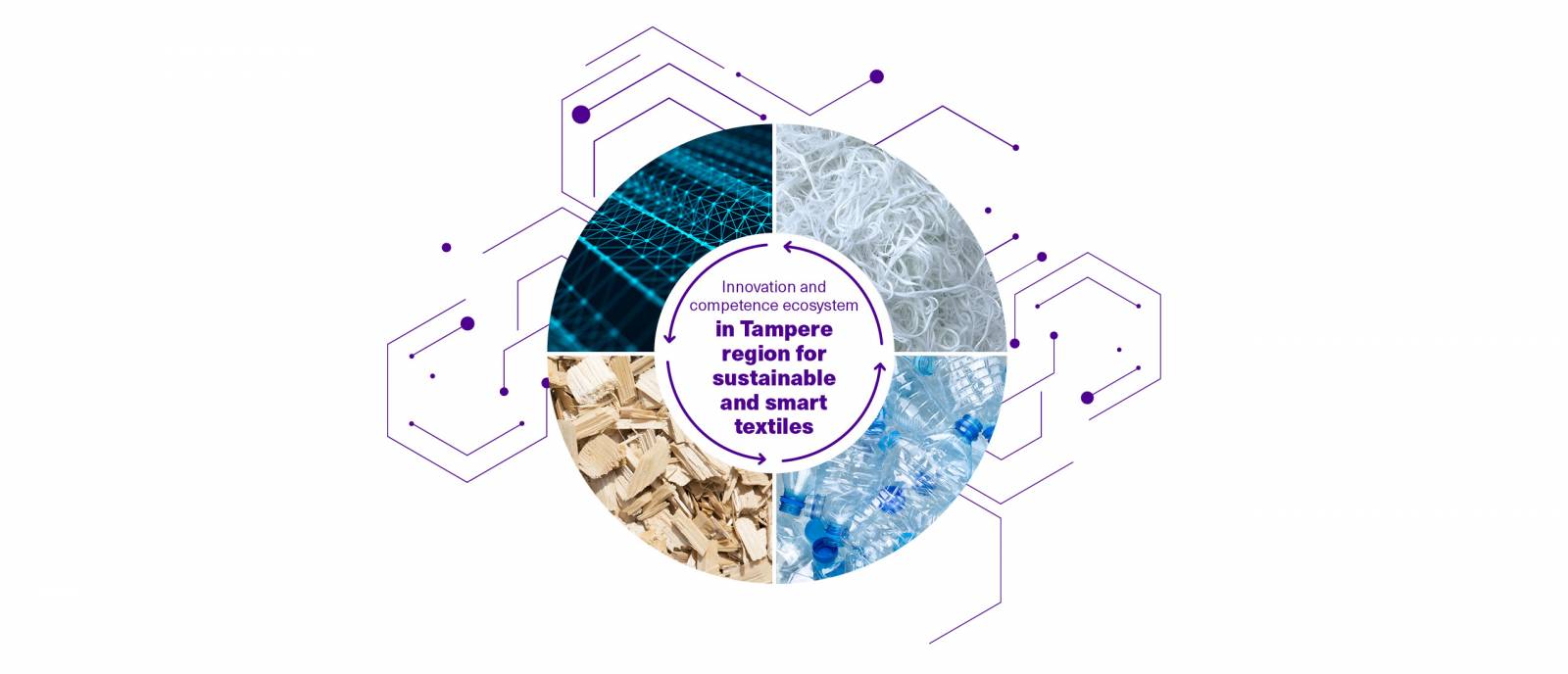Towards an ecosystem of sustainable and smart textiles
The ecosystem developed in the project gathers experts from the textile, technology and IT industry around sustainable smart textiles. In the ecosystem, new, sustainably implemented smart textiles and wearable intelligence products and services are networked and innovated. Information about research, products, materials and manufacturers is collected on the digital platform. As a result of the ideation workshops, two pilots were implemented.
Pilot 1 – A relaxing cloth for a team
The purpose of the pilot 1 was to plan and implement product development using design thinking to convey and share clothing for the team. In smart clothing, technology was integrated into the durable textile material, which in turn consists of a wider technology platform, e.g. electronics, software and data components. At a later stage, after the project, the prototype of the product made in the pilot can possibly be utilized and modified into an entity suitable for other target groups as well. Other target groups are e.g. for office workers, remote workers, elderly people in home care or special groups.
Pilot 2 – Digital product passport as a promoter of responsibility, sustainability and transparency
With the help of companies from Pirkanmaa, other operators and user groups that participated in Pilot 2, we collected data for the digital product passport. The goal was to advance as far as possible in the global production chain of the demo product and test the functionality of tags implemented with different technologies. As a result, we got information about the data in the production chain, its utilization and how different identifiers can be used to store the data. In the future, the digital product passport could even serve as a kind of certificate among the actors in the production chain and for the consumer.



